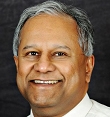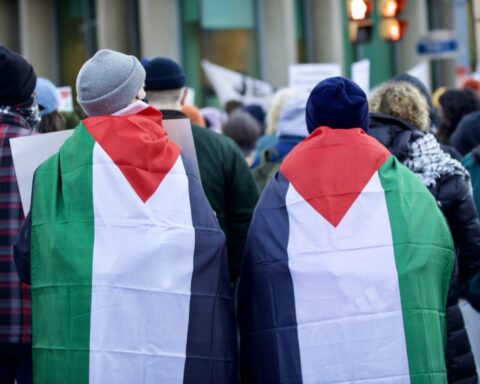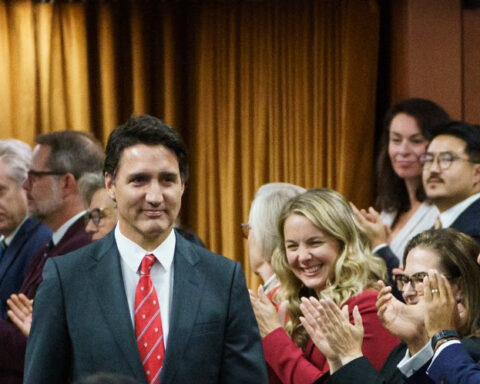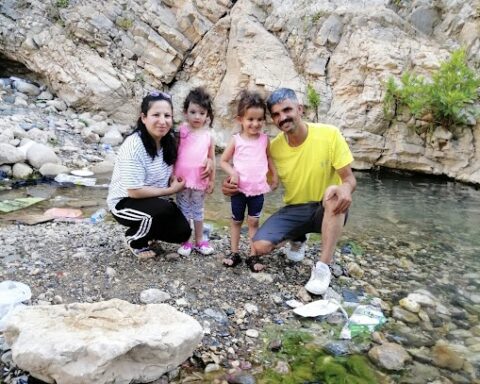Canada needs to know it limits before its next intervention abroad, be it military or humanitarian. And be humble about it.
This is the message foreign policy experts apparently want to convey to prime minister-designate Justin Trudeau after he told a rally in Ottawa, “On behalf of 35 million Canadians – we’re back [after having lost our] compassionate and constructive voice in the world over the past 10 years.”
The experts gathered at the Munk School of Global Affairs on Monday for the launch of Elusive Pursuits: Lessons from Canada’s Interventions Abroad, a Centre for International Governance Innovation (CIGI) book under its Canada Among Nations series.
“Canadian foreign policy will certainly undergo a shift, as Mr. Trudeau has already indicated regarding our role in the fight against ISIS (Islamic State in Iraq and Syria),” said Fen Osler Hampson, director of the global security and politics program at CIGI, who co-edited the book.
“From global summitry and international coalitions to humanitarian crises, Canada has much to offer on the world stage,” Hampson continued. “Elusive Pursuits offers a unique lens on where Canada’s military presence and foreign aid has been and where it might be heading.”
Making a difference abroad
To be clear, Canadian Forces never stopped deploying, but rather the focus went from United Nations missions to NATO (North Atlantic Treaty Organization) efforts, he said.
“But as Canada has always not just been among nations, as the series title suggests, but in them, our politicians may as well be humble about what we can strategically do.”
“No world leader gets up wondering what Canada is doing today.”
As a middle power, our options will always be limited, said Hampson.
“We are strategy consumers, not producers. The big decisions about military operations are generally made by the United States, our main ally.”
Canada’s tendency is to intervene under the auspices of international institutions as it cannot operate by itself anywhere and can only send a fragment of what is needed to complete any operation.
“This is not to say that Canada cannot make a difference in many difficult places in the world, but intervention is hard, it is complicated, and it requires more patience than we usually have. Choosing not to intervene also has consequences,” Hampson explained.
“Today’s wars do not burn themselves out. We need the stamina to stay the course and cannot just get bored and exit.”
Selecting instruments of intervention
Emphasizing Canada’s strategic limitations, Hugh Segal, Master of Massey College and former senator, who wrote the foreword for the book, said, “No world leader gets up wondering what Canada is doing today.”
“Every choice we make, military or humanitarian, has a collateral implication.”
Segal said while the option of looking away is a serious abdication of our role among nations, it is important to carefully select the instrument we choose to intervene with.
“It need not always be deployment of troops,” he stated. “We may let regional players do the job while we help with money. But if we don’t have the right instrument in our tool box, then we shouldn’t intervene.”
However, there is no single magical instrument, cautioned Aisha Ahmad, a panelist at the discussion who wrote a chapter in the book on Canada and Somalia titled “Learning from the Legacy of Failed Intervention”.
“Every choice we make, military or humanitarian, has a collateral implication,” said Ahmad. “Interventions are never neutral.”
Good intentions need to be carefully examined for their practical impact, she added. Feeding people is a great aim, but it could alter existing power relations, as food aid becomes a commodity in the war economy as it did when Canada intervened in Somalia.
Being realistic about our role
Jane Boulden, who wrote a chapter in the book on Syria and the Responsibility to Protect (R2P), said the genocide in Rwanda brought the R2P concept to the forefront.
“There is always the need for assistance instead of interference.”
But there has been resistance when it is seen as being used for regime change like in the case of Libya and currently Syria, continued Boulden.
Given the interest of the new government in peacekeeping operations, it makes sense to look at past Canadian efforts without the misplaced nostalgia, said Stephen Toope, director of Munk School of Global Affairs.
“I think we have to be realistic about the kind of role we can play. There is always the need for assistance instead of interference.”
In a recent article in the Ottawa Citizen McGill University professor William Watson effectively summed up the need for humility, which anchored the whole panel discussion:
“We apparently never tire of telling the world it needs more Canada,” he wrote. “I find it all cringe-worthy. The best test of that is to ask yourself how the boast you are making about Canada would sound if an American said it about his country. ‘The world needs more USA!’ ‘Yeah, right, buddy.’”
Ranjit is a Toronto-based writer with interest in Canadian civic affairs, immigration, the environment and motoring. Maytree and Al Jazzera English alumnus.





